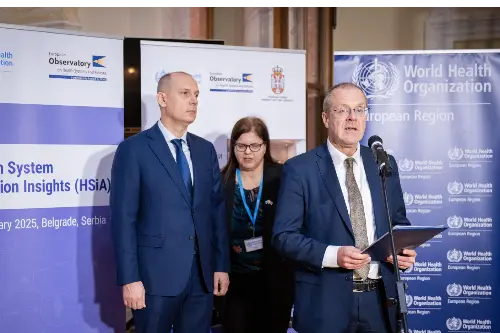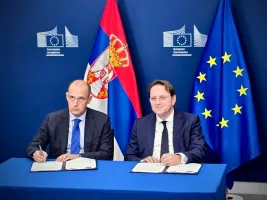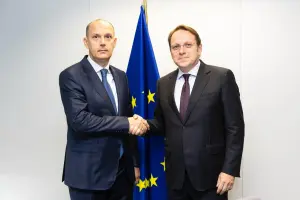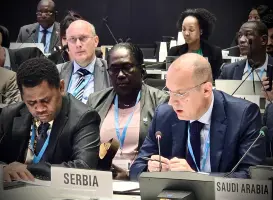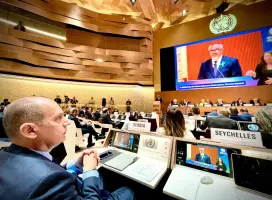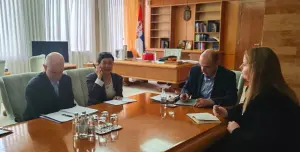Dr Hans Kluge, World Health Organization (WHO) Regional Director for Europe, praised Serbia's health policy today and said that he was honoured that our country had become part of the WHO Executive Board.
World Health Organization's Director for Europe Praises Serbia's Health Policy
Dr Kluge is in Belgrade, where a meeting of 15 non-EU countries from the European region is taking place, and the host of the WHO Regional Director is the Minister of Health in the Government of the Republic of Serbia, Dr Zlatibor Lončar. The two of them opened the third session, Insight into Health Systems’ Actions in the Serbian Parliament.
"We are here in beautiful Serbia to demonstrate WHO Europe's strong commitment to supporting the health systems of non-EU countries.
This year, we are sharing snapshots of health systems in 15 non-EU countries, including Serbia, the UK, Switzerland and Israel. Each of these insights is built on solid data provided by the 15 countries and carefully analysed by the WHO. Fifteen non-EU countries now have concise, accessible health information and data at their fingertips," said Dr Kluge. As he explained, the aim is to empower countries to share knowledge and learn from each other.
"It is difficult to generalise the state of health and health systems in such a diverse set of countries, but our reports reveal some common successes and common challenges. All countries in the study are facing a health workforce crisis. Across the WHO European Region, this threatens to overwhelm our health systems in the years to come. We must value and nurture doctors, nurses, frontline workers," highlighted Kluge.
He stated that, according to the data, all 15 countries have shown progress in universal health coverage, including Serbia, where, as he highlights, almost the entire population is covered by health insurance.
"Countries are also increasing their public spending on health, recognising that this is the best way to ensure stability and economic development.
I congratulate Serbia, which now spends more than 6.3 percent of its GDP on health, compared to 4.7 percent in 2017," said Dr Kluge. Finally, Kluge congratulated Serbia on becoming a new member of the WHO global executive board.
"This shows that Serbia can and should actively contribute to shaping global health. We must keep health high on the political agenda, especially considering the recent executive order signed by President Donald Trump with the intention of withdrawing from the World Health Organization. This will be a lose-lose situation for everyone. That is why dialogue is so important. We are very excited that Serbia is on the WHO Executive Board, and especially Minister Lončar, whom I have known for over 10 years. Serbia's positions and views are aligned with the WHO. In fact, here I would like to congratulate Minister Lončar for working hard with our WHO representative, Dr Fabio Scano, on vaccination, namely 50 percent of unvaccinated children in rural areas have been administered vaccines.
"This is a great success," he highlighted. Minister of Health Zlatibor Lončar highlighted that he was pleased to have the WHO Director for Europe, Dr Hans Kluge, as a guest in Belgrade.
As he said, the reason for the visit is a gathering of 15 non-EU countries in the European region, and today they will deliberate on the results achieved by those countries, analyse what they are doing, and discuss suggestions for what could be done better.
"I am proud of Serbia, I am proud of the healthcare system, which as you can see is open so that anyone can come and see how it works, to make their proposals and suggestions, we are always ready to implement new things and assist and apply good practices. I would like to thank my friend, Dr Hans, for supporting us," concluded Minister Lončar.


